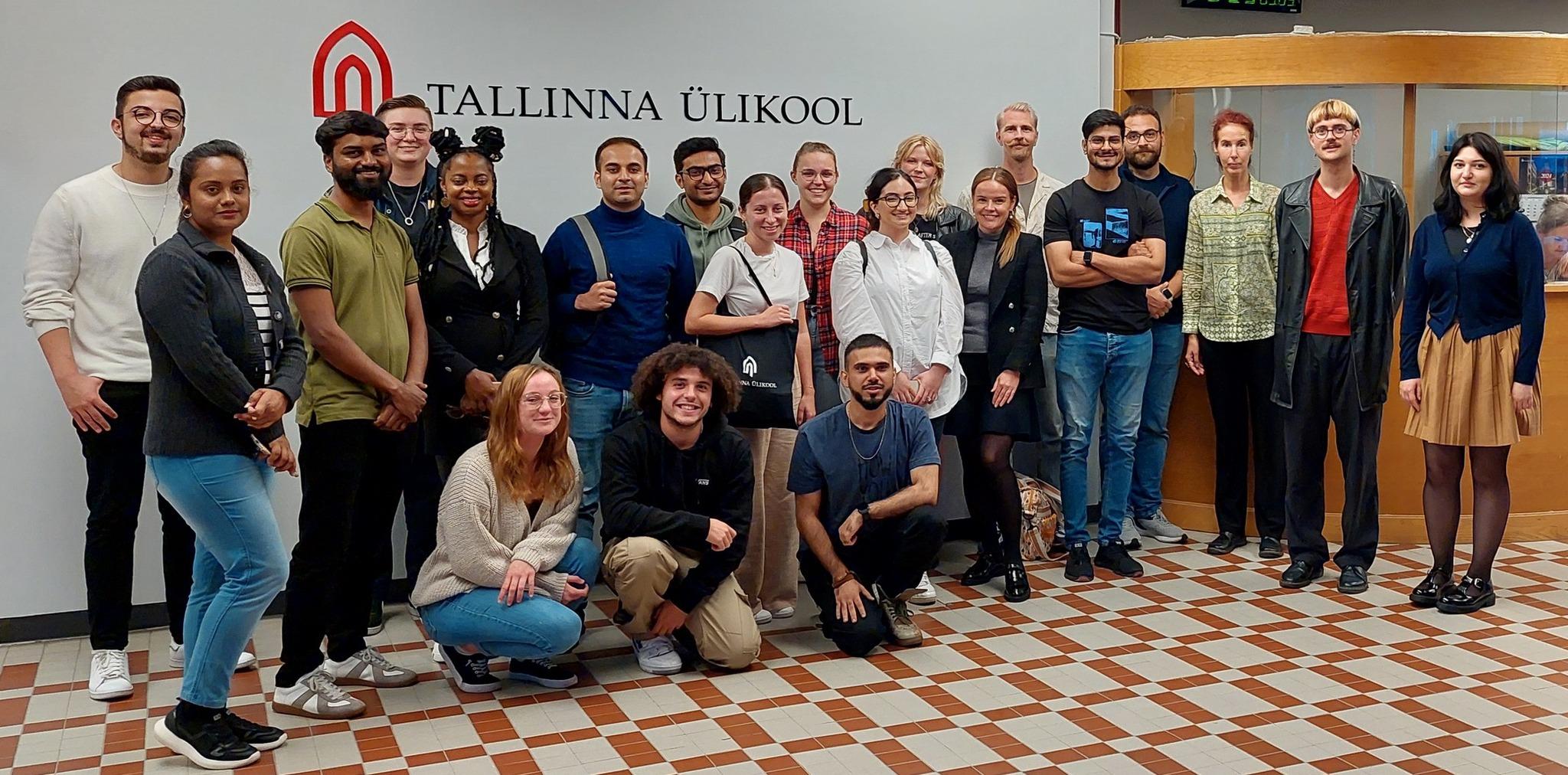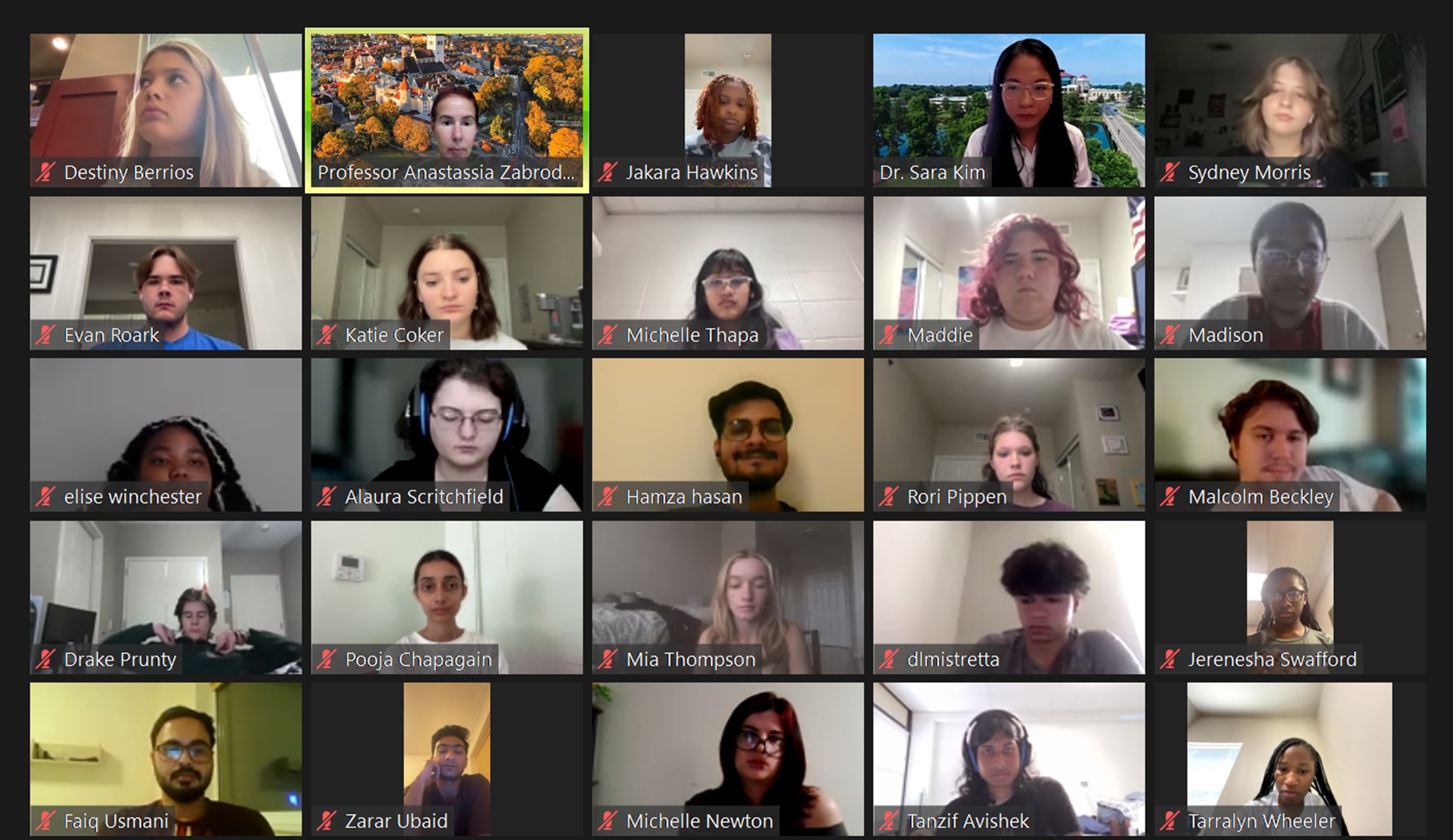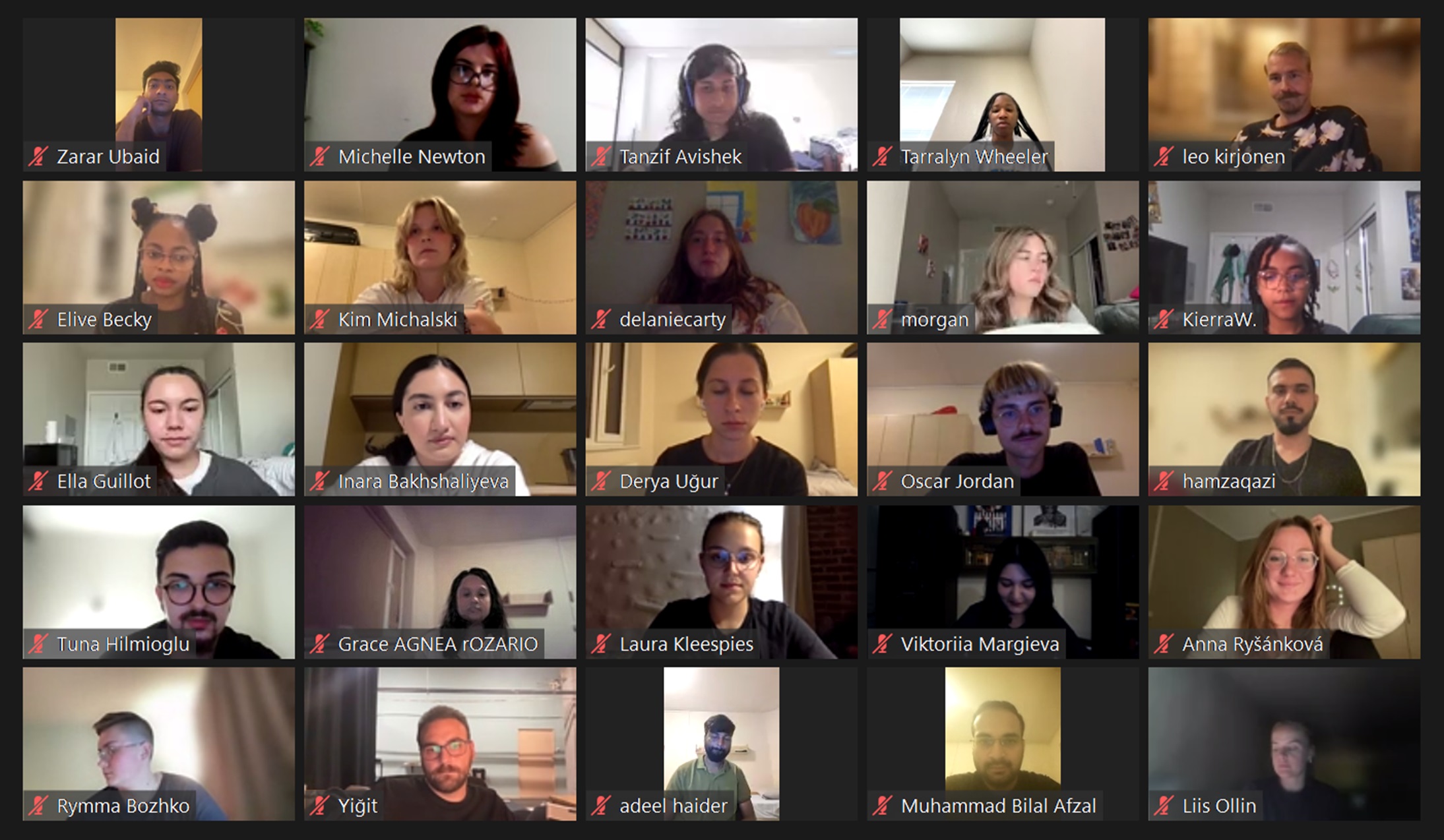Encouraging Telecollaboration within Courses on Intercultural Communication and AI-Mediated Communication
To ensure that courses on intercultural communication go beyond theoretical knowledge and equip students with real-world experience in navigating diverse cultural landscapes, Professor Sara Kim (University of Louisiana Monroe, USA) and I, Anastassia Zabrodskaja, have extended our telecollaboration into its fourth successful year. The topic has now evolved to incorporate both Intercultural Communication and AI-mediated Communication, reflecting the growing importance of artificial intelligence in shaping intercultural interactions.

This ongoing telecollaboration between Tallinn University and the University of Louisiana Monroe has thrived with continued support from Erasmus+, which has enabled the exchange of professors. Our virtual meetings have become a cornerstone of the project, allowing us to delve into innovative pedagogical strategies for analyzing the intersection of intercultural competence and AI communication tools. These sessions encourage students to explore both human and AI-mediated intercultural experiences, preparing them to navigate increasingly digital and globalized contexts.
The telecollaboration is fully integrated into the autumn semester and represents a significant portion of the course curriculum. Its main objective is to enhance students' intercultural awareness while fostering a deeper understanding of how AI-mediated platforms impact communication between culturally diverse individuals. Students engage in research projects that explore the role of AI in intercultural interactions, while simultaneously developing key skills such as empathy, adaptability, and critical thinking, with a particular focus on AI’s role in reshaping these dynamics.

During telecollaboration, students should learn to navigate AI-driven misunderstandings, as these experiences reflect real-world challenges in digital communication. AI tools, while helpful, can misinterpret language nuances, cultural references, or intent, leading to confusion or errors. By developing the ability to identify and address such misunderstandings, students sharpen their critical thinking and communication skills, which are vital in increasingly automated environments.
Fostering tolerance, patience, and intercultural awareness in digital settings is equally important. Virtual communication often spans cultural boundaries, and differences in language, customs, and perspectives can create friction or miscommunication. Learning to navigate these with patience and openness helps students build stronger, more empathetic global connections. These skills empower students to thrive in multicultural teams, where understanding and respecting diversity is key to successful collaboration.
As we embark on this fourth year of telecollaboration, we hope that the students' feedback will once again reflect a positive and enriching experience. Their insights continue to be invaluable as we refine this program, ensuring that it remains both impactful and relevant in preparing them for the complex intercultural challenges of our increasingly AI-driven world.

For additional information, please reach out to Dr. Anastassia Zabrodskaja, Professor of Intercultural Communication, Head of the MA program in Communication Management, and Executive Director of the European Masters in Intercultural Communication, at anastassia.zabrodskaja@tlu.ee.